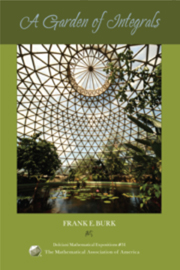Book contents
- Frontmatter
- Foreword
- Contents
- 1 An Historical Overview
- 2 The Cauchy Integral
- 3 The Riemann Integral
- 4 The Riemann–Stieltjes Integral
- 5 Lebesgue Measure
- 6 The Lebesgue Integral
- 7 The Lebesgue–Stieltjes Integral
- 8 The Henstock–Kurzweil Integral
- 9 The Wiener Integral
- 10 The Feynman Integral
- Series List
- Index
- About the Author
7 - The Lebesgue–Stieltjes Integral
- Frontmatter
- Foreword
- Contents
- 1 An Historical Overview
- 2 The Cauchy Integral
- 3 The Riemann Integral
- 4 The Riemann–Stieltjes Integral
- 5 Lebesgue Measure
- 6 The Lebesgue Integral
- 7 The Lebesgue–Stieltjes Integral
- 8 The Henstock–Kurzweil Integral
- 9 The Wiener Integral
- 10 The Feynman Integral
- Series List
- Index
- About the Author
Summary
Even now there is a very wavering grasp of the true position of mathematics as an element in the history of thought. I will not go so far as to say that to construct a history of thought without profound study of the mathematical ideas of successive epochs is like omitting Hamlet from the play which is named after him. That would be claiming too much. But it is certainly analogous to cutting out the part of Ophe- lia. This simile is singularly exact. For Ophelia is quite essential to the play, she is very charming — and a little mad. Let us grant that the pursuit of mathematics is a divine madness of the human spirit, a refuge from the goading urgency of contingent happenings.
—Alfred North WhiteheadThe Lebesgue measure weights intervals according to their length: µ((a, b]) = b - a. We are looking for different weightings of intervals, trying to find measures different from Lebesgue measure. Of course the general properties of a measure — nonnegative and countable additivity for disjoint sequences of measurable sets — must be retained. We will discuss three of the most common approaches, which differ from each other essentially in their starting points.
L-S Measures and Monotone Increasing Functions
In Chapter 4 we explored the particularly fruitful, and most fundamental, approach of Thomas Stieltjes, who modelled mass distributions with monotone increasing right-continuous functions.
- Type
- Chapter
- Information
- A Garden of Integrals , pp. 155 - 168Publisher: Mathematical Association of AmericaPrint publication year: 2007



